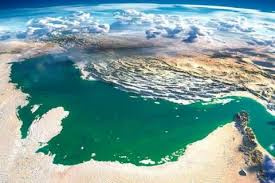Pakistan welcomes Rouhani’s HOPE initiative: Fakhar Imam

Chairman of Pakistan’s parliamentary committee on Kashmir says his country welcomes Iranian President Hassan Rouhani’s initiative for securing the Persian Gulf and the Strait of Hormuz, called “Hormuz Peace Endeavor (HOPE)”.
“I think in principle President Rouhani’s proposal is a very constructive one,” Syed Fakhar Imam said in an interview with the Tehran Times.
During his speech at the 74th UN General Assembly in late September, President Rouhani said, “Based upon the historical responsibility of my country in maintaining security, peace, stability and progress in the Persian Gulf region and Strait of Hormuz, I would like to invite all the countries directly affected by the developments in the Persian Gulf and the Strait of Hormuz to the ‘Coalition for Hope’, meaning Hormuz Peace Endeavor.”
Mr. Imam pointed to the HOPE initiative, saying, “Wherever there’s peace and order, the citizens of all countries benefit, and wherever there’s war, ultimately the citizens suffer.”
Mr. Imam who had visited Tehran along with a parliamentary delegation also said President Rouhani’s initiative could play a positive role to bring about peaceful negotiations between regional countries based on mutual respect.
“If some kind of formula can be evolved, I think it’ll benefit the whole region,” he added.
The Pakistani parliamentarian referred to Prime Minister Imran Khan’s visits to Tehran and Riyadh, saying, “Mr. Imran Khan visited both Tehran and Riyadh recently. He was asked obviously by Mr. Trump and the Saudi king and the crown prince to be the facilitator.”
“They asked him obviously,” he reiterated. “He wouldn’t have come on his own.”
PM Imran Khan visited Tehran last month for talks with Leader of the Islamic Revolution Ayatollah Ali Khamenei and President Rouhani. Khan then visited Riyadh afterwards. His visits were aimed at playing a mediatory role to reduce tension between Iran and Saudi Arabia.
Mr. Imam went on to say that the visits were a “very positive step” by the Pakistani prime minister and it was the first time any Pakistani leader was asked to play an intermediary role.
“I’m not sure what talks took place, I’m not familiar with the content of the talks, but I think in principle it’s a very good thing, especially if something can be resolved peacefully between these two countries,” he added.
‘U.S. JCPOA withdrawal was very unfortunate’
Asked to comment on the prospects of the Joint Comprehensive Plan of Action (JCPOA), commonly known as the Iran nuclear deal, Mr. Imam said it was unfortunate that the United States unilaterally withdrew from the historic agreement.
U.S. President Donald Trump withdrew Washington in May 2018 from the JCPOA, which was reached between Iran and six world powers in 2015, and imposed sanctions on the Islamic Republic.
Iran and the remaining parties launched talks to save the JCPOA after the U.S. withdrawal, but the three EU parties to the deal (France, Britain, and Germany) have failed to ensure Iran’s economic interests.
The Pakistani lawmaker described the JCPOA as a “very positive, excellent, constructive” agreement.
“Mr. Trump since last year, 2018, decided to unilaterally opt out. Now, in the last few weeks Iran has started enriching its uranium. First it gave notice to the European countries that if you do not do A, B and C, we will do it, so they started doing it,” he stated.
Following the U.S. withdrawal, Iran remained fully committed to the JCPOA for a year, but announced on the anniversary of Washington’s bellicose move that its “strategic patience” is over and would gradually reduce its commitments to the deal at 60-day intervals, which were designed as deadlines for Europe to protect Tehran’s interests under the deal.
“I think for world peace, world order, and world’s political stability, the JCPOA was an excellent arrangement if America had not gone on its own,” the top Pakistani lawmaker said.
“It’s what the Americans have done vis-a-vis Iran. I think it’s very unfortunate,” he added.
India after changing Kashmir’s demographics by letting more Hindus in: Pakistani MP
Asked about the Kashmir crisis, the Pakistani parliamentarian said there have been eleven UN Security Council resolutions according to which Jammu and Kashmir were recognized as disputed territory.
“After August 5, when Mr. Modi decided to set aside which was an internal arrangement on Indian-occupied Kashmir and article 370 of India’s constitution which said that Kashmir is special status, they have downgraded the status of Indian-occupied Jammu and Kashmir into two union territories, which is against their own arrangement and agreement with the leadership of Indian-occupied Kashmir,” he explained.
“The Indian government has downgraded the state into two union territories to be controlled directly by New Delhi ... Now they’ll be directly controlled by New Delhi,” he said. “It’s a very major thing. We don’t recognize any of that.”
He said the Indian government has gone into the disputed territory and deployed 900,000 troops there, and 180,000 troops moved in after August 5.
The UN Security Council established that “the world recognizes Kashmir as disputed area, which is very important, and that the future of Kashmir under the UN Security Council will be decided by plebiscite through vote of the Kashmiris,” he pointed out.
Mr. Imam stated that over 100,000 Kashmiris have been killed since 1987.
He also criticized the Indian government for ethnic cleansing of the Kashmiris and trying to change the demographics of Kashmir by allowing more Hindus in.
“There’s been a UN human rights council report, condemning all of India’s atrocities,” he said, adding that the Indian government does not allow anyone, including reporters, to go into the disputed area.
“Mr. Modi has gone against all canons of justice, law and basic human rights of Kashmiri citizens,” he concluded.

